Log In
View Upcoming Events
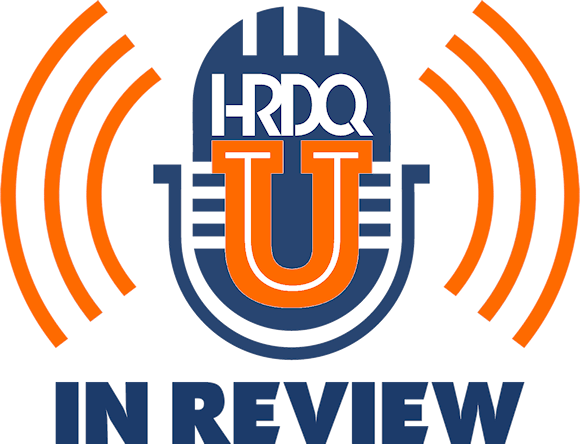

Join us as we explore the importance of demonstrating the value of our work in today’s uncertain economy and flexible work environment. Our guests, Jack and Patti Phillips, co-founders of the ROI Institute, will share their six-step process to help individuals showcase the value of not only major projects but also their day-to-day work. Through stories, they will provide insights into how people have successfully used the process to showcase the value of their work. Join us to learn about the importance of showing the value of your work and how to do it effectively.
00:09
Today we will be looking at a recent webinar that we ran with Drs. Jack and Patti Phillips on Show the Value of What You Do: Measuring and Achieving Success in Any Endeavor. Thank you so much for joining us today, Drs. Jack and Patti Phillips. Good to be here. Thank you, Sarah. Thank you. And before we get into the content here and going more into the details of what we discussed during our webinar, can you let everybody know a little bit about yourself, who you are, what you do and how you got here?
00:36
Sure, happy to. So Patti Phillips, CEO, ROI Institute. We drive measurement, evaluation, accountability in programs through our ROI methodology. And we do that with education, consulting practice. We do a lot of coaching around accountability and building a measurement strategy in the organization. And we’ve been in business for about 30 years. Did it for long time, write a lot of books and articles. So we try to get the process into the hands of
01:06
those people who need it and we will do that however they can receive it again through publications, workshops, consulting, et cetera. So Jack, you want to tell them how this all evolved? Yes, I’m Jack Phillips. I’m chairman of the R.O. Institute. And just add to that, our mission is we help people see and show the value of what they do. Whatever you’re doing, whatever you challenge you have in front of you, when you accomplish that, you need to show the value.
01:35
these days value is more than just how people perceive something, but it’s actual data sometimes. And so we help people with that issue. So it’s so good to be with you. Great. And so now getting back into the webinar. So as a recap for those that did join us during the live event, as well as for anybody who’s new listening in that didn’t have a chance to attend the webinar, can you let us know what the key takeaways were for the registrants at our event?
02:05
Yes, it’s getting people to reflect on the projects and programs and events and initiatives that they’re involved in and thinking about how success is defined. And we define success with five levels. How people react to what we do, that’s level one. What people learning from the project and the process, that’s level two. What do they actually do to apply what they’ve learned, that’s level.
02:35
three and then the impact it has in the organization is level four and ROI is level five. Is it worth it? Is the ROI? So we make a decision. What do we want to take the process? Where do we want to stop our measurement? Some want to go to impact. Some want to go all the way to ROI. In doing so,
03:04
We offered a six step process to get there. It’s about starting with why and then how do we get there and then how much is the data collection? Is it worth it? And then so what at the end? How do we leverage it? So we teach you the double levels of success and how to tackle that in a particular project. So what do you want to add to that?
03:34
Sure, I mean, I think you summed it up pretty well. again, it gets down, really boils it down to how do you design solutions to not only deliver the value, but to create it from the beginning. And that’s, as Jack was saying, that’s, we have the six questions that we focus on. It’s the why, the how, the what, how much, what’s it worth, and so what of it all. So really designing work. And that could be a program, a project, initiative. It could be a person’s individual effort.
04:02
Why are we doing it? What are we trying to drive there? It’s not about what people know. It’s not about what they do. It’s about the consequence of what they’re doing with what they know. Yeah, and so zooming out a bit here, what changes do you see happening in the L &D space right now over at ROI Institute? The changes in the L &D space. So yeah, so Jack, you were about to say I could hear it. What are we gonna say? Don’t lose your thought. Yes, well, yes. So you know.
04:31
Our accountability is shifted a good bit, and so we’re thinking about how do we show success? We typically have measured reaction and learning. More people are measuring application impact and ROI. And we’re sometimes have been concerned with. These. In science of of learning measurement, but now we’re looking at the learning analytics that’s putting it past the actual learning.
05:00
pushing it into the application and impact area. Also, we’re seeing a shift in the way programs are starting. As Patti just mentioned, we want to start with the end in mind. If you start with the end in mind, you’re likely to achieve the end. But the end is not just knowing something or just doing something, but the end is the impact. And that’s the key thing, because if you go look, if you talk to the executive,
05:29
provide budgets for L &D, they really want to see what impact are you having in the organization. Yes, they know people have to learn, but that’s not it. That’s just an interim. Yes, people have to do something. That’s still an interim. You’ve got to have the impact. And that’s why we focus so much on achieving that impact. changes are being made in the way they design and
05:59
deliver the programs to make sure that impact is there. And when you do that, not only do you your funders happy, that’s if people give it to you, but you get more support or commitment and the team is happier too. Everyone likes to know that you made a difference in the organization. If you don’t have data to show that, you’re always wondering what difference it makes. And what we know from the research Sarah is
06:25
Institute for Corporate Productivity, the Conference Board, PWC, all these organizations, they’re doing this amazing research around talent, what CEOs want is what we know, especially for 2023 and beyond, but for 2023 in particular is that there’s CEOs are interested in growth. That’s where companies are going today. It’s about growth.
06:45
profitability, it’s changing their business model, but it’s doing it all with talent in mind. So having the right talent in the right roles with the right skill set is critical to achieve that growth, that profitability. And again, all part of shifting that business model. Digital transformation, we talk a lot about it, and that is key to it, but you gotta have the talent to make it happen. So the whole idea of reskilling is important, but it’s not just reskilling for the sake of it, it’s reskilling with an end in mind.
07:14
So building these cultures of accountability, cultures of accountability when it comes to resource allocation, how we’re the resources, the impact of the work we do, but then holding others accountable to what they need to do to ensure the workplace is a place that people can thrive. Because if the people within the organization thrive, the company will do better. So it’s really looking, today we’re really looking at that balance between doing
07:37
well and doing good. Companies have to drive revenue. They have to be profitable in order to do good by their people. But they also have to have the talent fully engaged and developed to drive that revenue and profitability. So it’s a very interesting place where we are today. But it’s an exciting place too because now we go into learning programs. We invest in learning and development and invest in our people intentionally. So it’s not just throwing programs at them and saying, oh, we’re going to do this and this.
08:05
really becoming intentional about what we do, about creating value from the beginning, designing programs to deliver value, but then also demonstrating the value is there. And then when it’s not, make a shift. Use the information coming from the evaluation to improve the program or make a shift in the system that supports the development of their people. So 2023 is exciting. And then we expect the next few years ahead to be just as exciting. Well, that’s great. And that’ll lead me here into my next question.
08:34
is you know what exciting things are is the ROI Institute up next? It’s interesting. I think our claim to fame maybe is that we measure the hard to measure and we value the hard to value. And so we’re constantly moving this into new areas and new cultures and that brings us into all kinds of projects and programs. In the L &D space it’s the software programs that are really
09:04
of begging for this kind of work. It’s the things like leadership development, although that’s fundamental, we still as a profession do a very poor job of showing the value of that, the value in terms of what executives want to see. But we’re getting to solve things like communications and culture change. So we work a lot in those areas. Not because everybody just wants to do this.
09:34
that those areas have question marks in terms of the value they deliver. And it often causes people to tackle this issue or something like that. we get in, we have some interesting projects and culture and using personality instruments as a mode of communicating in an organization. It’s sometimes a lot of the products that you have there at HRDQ.
10:01
as they’re implemented, executives would like to know. Particularly if implementation is wide scale. So we move and beyond that, we move into different countries. We work in seven countries. We use this methodology beyond L and D. It gets us into things like innovation and marketing and technology and using those things too.
10:26
So this not only works in L and D so well, but it also works in other measures, other fields as well. We’re just just, you know, embracing the opportunity we’ve never had. I’m an R.O. Institute. We’re very lucky in that the work that we do doesn’t stop, right? So the economy doesn’t hurt it so much. pandemic, the pandemic really made a shift a lot because like everyone else, we had to go totally virtual. So.
10:50
What it did was give us an opportunity to make the shift that we needed to make many years ago. And so now this year and moving forward, we’re taking advantage of that shift along with building these new resources that we have for individuals. So new options for people to develop their measurement and evaluation analytics capability. Great. And bring it back to the book. So the recent webinar we did was based on your new book, Show the Value of What You Do. What inspired you guys to write this book and why now?
11:21
Oh, we’ve been writing about this for a long time. Our book on evaluation of learning was our first book in 1983. It was the first book on training evaluation in the USF. But that book now in its fourth edition has over 500 pages. That’s quite daunting for a lot of people. So a lot of our books get very involved, lots of examples, lot of technical detail.
11:49
And so they become very thick. And that’s not a good thing, necessarily. Most people want something that they can pick up and read and get engaged quickly. we wanted a book that is not so intimidating, only 150 pages, has lots of stories, 20 stories of how this has made a difference with individuals and organizations. And it starts with a chaplain who’s trying to show the value of the
12:19
in a hospital system. And so it’s interesting, it’s engaging stories that this has made a difference in the work that people are doing in their own career, sometimes even a life-changing experience for some. So we find, we think this book is a way to get into this process without a lot of numbers, detail and processes, but just…
12:49
telling stories and showing the structure around its story so that you see what needs to be done and follow up the process. We hope people enjoy this approachable, exciting and engaging book. Great, and so who is the book intended to help? It’s intended to help individuals. Those people as Jack said, he mentioned our colleague Doug Stewart Memorial Health. was intended to help
13:19
The book was written for people like him who had an entire functional area. So that’s one group. But also the individuals. So you, example, Sarah, myself, or others, looking at their individual work. why am I doing what I do? What productivity or what quality am I going to bring to the table by doing this work? So at the individual level, independent contributors, functional heads or departmental heads who are driving change in the organization or driving
13:47
developmental opportunities in the organization. know, senior leaders, people who know they need to do something in terms of measurement and accountability, but they just don’t know how to get started because it is an intro book. Many of our books, as you know, and as Jack alluded to, they’re big, thick, technical books. So they’re getting into the details. This book is really an introduction to it. So it’s how do we change our thinking around
14:17
measurement and the use of ROI. So those people who maybe they don’t want to get into it too deeply yet, they just want to change that thinking. But it’s gonna be for someone who just needs a refresher, a new way of looking at things and who want to see what are the different ways we can use this methodology. Because as Jack said, all the stories we have in there, they’re different. Many of our stories, many of our case studies, we have all those books that we’ve done with the detailed case studies. It’s around leadership and engagement and about
14:47
know, corporate, nonprofit, non-governmental organizations. So we have covered the different sectors, but in this book, we have some different stories, like the Chaplain stories. We have stories around Kansas City SWAT team. We have, you know, reference to work at home solutions. We have a great story about a new program that we’ve been involved in, actually, a couple of years. Renew America Together, civility leadership, totally different than what we’ve done in the past.
15:14
So it’s just helping people change their thinking, see how others are changing their way of thinking in terms of their program and how they demonstrate value. So individual contributors all the way to senior executives and for any sector across the board, regardless of the type of solution they’re involved in. Yeah, and you know, I have the book actually right here in front of me and I think it’s great for that person that is just looking to get their feet wet or understand something new and learn something new because it’s…
15:41
150 pages, it’s not intimidating for someone to approach a new topic. Right, and that’s what we were going for too, because you know the 400 page handbook, that’s intimidating, right? It’s got math in it. This book we left the math out. Now the process calls for math, but we left it out of this book because some people just want to, just an intro, just kind of what are we thinking, what do mean by ROI, what do we mean by value? So that’s where we were going with this book.
16:09
We wanted to simplify it, make it more consumable to a larger group. Great. And I think that leads us here into this next question is, know, that we hear the term ROI quite often today. Can you explain exactly what that means?
16:25
Yes, I’ll start with that. It’s basically showing that it’s worth it. You know, when we purchase anything, you know, we always want to, is this worth what I’m paying for? And so we’re taking that philosophy, but connecting it to the most common ROI calculations from the planet. Governments have been a term called benefit cost ratio. comes from cost analysis.
16:54
That’s been there for centuries. So we use that ratio. But in businesses, have an ROI expressed as a percent. Just like if you put your money in a savings account and you get 3 % return, that means for every dollar you put in, you get your dollar back plus 3 % for a year. We use that term. So we calculate both ways. It’s benefits divided by cost for the benefit cost ratio. And it’s a…
17:21
For ROI, it’s benefits minus the cost divided by cost times 100. That lets us use a percent. It’s the ultimate level of accountability. It’s not a bad thing. Some people don’t like ROI because it is the ultimate level. They’re concerned that maybe they don’t deliver that value to overcome the cost. But it’s a fair thing to ask because we as consumers make that mistake so much. And it’s not.
17:50
should not be unexpected for the purchaser of our programs or the funder of our programs to ask that same question. So is it worth it for me? And that we try to clarify that, present that in a way that even your chief financial officer will support if they put their foot the step. Yeah, and Jack and Patti, you’re both mentors and teachers of sorts. So what do you enjoy most about the work that you guys do?
18:20
Part of what we do is working with our clients. We both love to teach. So we run our certification. that’s probably one of most enjoyable things that we do. there, we’re teaching, but we’re also drilling down into projects. So it’s long enough that we can actually get to know the participants and what they’re up against. So we can teach them the process, but actually transfer it to an actual project they’re working on.
18:48
So it’s teaching and consulting and advising. That’s probably the favorite thing that we do. we work with the most amazing people. Our team, ROI Institute, and our clients, and our partners. We have partners all over the world that we get to work with and help them implement the process into their client organizations. So we like all of it, but I think it’s that educator that comes out in both of us. Even through the writing, we’re always teaching. So I think that’s what we love about it.
19:18
That’s what I love about Jack. I’ll let you speak for yourself. Well, it’s a client satisfaction that we generate. Our clients thank us for working with them and. And it should be the other way around. We should thank them and we do, but it’s something they need, but they don’t understand it. So clearly we make it understandable if if they got disappointing results. We show them what they can do to make it. Successful.
19:48
And that’s really helpful. So I enjoy working with clients. We do lots of projects, consulting projects where we show the ROI. In particular, those that are hard to value, hard to measure. We can get the money there, incredibly. And it just makes them so happy. So that’s a part that I like to work.
20:11
Well, that’s great. And before we conclude our conversation today, you know, let’s let listeners know where can they go to learn more about your work website, your LinkedIn, where can they connect with you at? Yes, first, the website is roinstitute.net. Patti’s got P-A-T-T-I at roinstitute.net and I’m at Jack at roinstitute.net. Our book is available
20:38
Wherever books are sold Amazon is a good place to get it if you like it. We’ll make the promise to you If you buy this book in it, it’s not It’s not what you wanted. It’s not helping you. It’s not worth it Keep the book send us a note what they are including shipping and we’ll send you a check Keep the book so it can’t go up. So we invite you to get involved in this and get this book and look at some of the
21:08
good stories in there. what do you think? And talk to us if you’d to have a conversation about it. We’re both available. Patti, I bet you’re adding to that. Yeah, no. If anyone would like to hop on a call, talk about the book or talk about a project or just have a conversation about measurement evaluation in general, please reach out. We’re always happy to have on a call. Great. Well, thank you both, Jack and Patti, for joining me today. Thank you for having us. Thank you. Thank you so much for all you do there at HRDQ.
21:39
Yeah, and all the listeners joining in today, make sure that you join me for next week’s episode, and I will see you all soon.


Listen to this podcast event at no charge with your
HRDQ-U Free Access Membership
Join us as we explore the importance of demonstrating the value of our work in today’s uncertain economy and flexible work environment. Our guests, Jack and Patti Phillips, co-founders of the ROI Institute, will share their six-step process to help individuals showcase the value of not only major projects but also their day-to-day work. Through stories, they will provide insights into how people have successfully used the process to showcase the value of their work. Join us to learn about the importance of showing the value of your work and how to do it effectively.
[ PODCAST PLAYBACK ]
You must be signed-in with your membership account to access this content.
Enjoyed this podcast? Have suggestions on how we can improve? Please take our quick survey and receive a coupon for 15% OFF any of our individual membership plans.
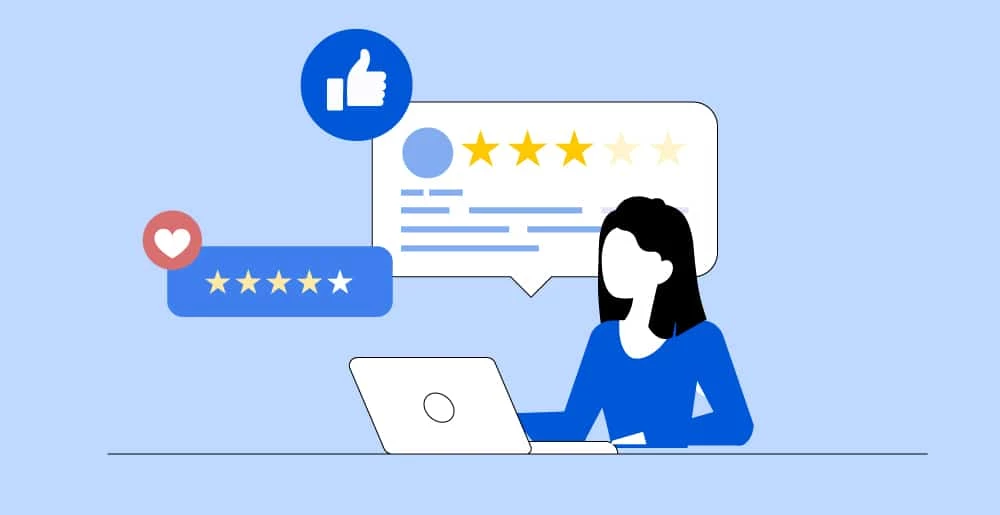
*Instant 15% coupon available upon completion of survey.
Want to learn more? Become an Individual or Corporate member to watch this and hundreds more webinars!
Learn about the six-step “Show the Value” process that is designed to support individuals who need to show the value of not only major projects but also their day-to-day work. Jack and Patti will also share stories describing how people use the process to demonstrate the value of their work.
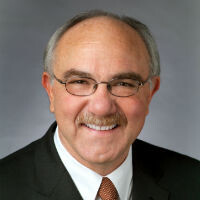
Jack J. Phillips, Ph.D.
Jack J. Phillips, Ph.D., chairman of ROI Institute, Inc., is a world-renowned expert on accountability, measurement, and evaluation. He provides consulting services for Fortune 500 companies, nonprofit entities, and government and non-governmental organizations globally. He is the author or editor of more than 100 books, conducts workshops, and presents at conferences worldwide.
Jack has received several awards for his books and work. The American Society for Training and Development gave him its highest honor, Distinguished Contribution to Workplace Learning and Development. The International Society for Performance Improvement presented Jack with its highest award, the Thomas F. Gilbert Award, for his contribution to human performance technology. On three occasions, Meeting News named him one of the 25 Most Powerful People in the Meetings and Events Industry, based on his work on ROI. The Society for Human Resource Management presented him with an award for one of his books and honored a Phillips ROI study with its highest award for creativity. In 2019, Jack, along with his wife Patti P. Phillips, received the Distinguished Contributor Award from the Center for Talent Reporting for their contribution to the measurement and management of human capital. His work has been featured in the Wall Street Journal, BusinessWeek, and Fortune. He has been interviewed by several television programs, including CNN.
Jack regularly consults with clients in manufacturing, service, and government organizations in 70 countries around the world.

Patti P. Phillips, Ph.D.
Patti P. Phillips, Ph.D., CEO of ROI Institute, Inc., is a renowned leader in measurement and evaluation. Patti helps organizations implement the ROI Methodology®️ in more than 70 countries around the world. Since 1997, Patti has been a driving force in the global adoption of the ROI Methodology and the use of measurement and evaluation to drive organizational change. Her work as an educator, researcher, consultant, and coach supports practitioners as they develop their own expertise in an effort to help organizations and communities thrive. Her work spans private sector, public sector, nonprofit, and nongovernmental organizations.
Patti serves as a member of the Board of Trustees of the United Nations Institute for Training and Research (UNITAR). She serves as chair of the Institute for Corporate Productivity (i4cp) People Analytics Board, principal research fellow for The Conference Board, board chair of the Center for Talent Reporting (CTR), and she is an Association for Talent Development (ATD) Certification Institute Fellow. She also serves on the faculty of the UN System Staff College in Turin, Italy. Patti has authored or edited more than 75 books on the subject of measurement, evaluation, analytics, and ROI. Her work has been featured on CNBC, Euronews, and in more than a dozen business journals.

Training Tools for Developing Great People Skills
This event is sponsored by HRDQ. For 45 years HRDQ has provided research-based, off-the-shelf soft-skills training resources for classroom, virtual, and online training. From assessments and workshops to experiential hands-on games, HRDQ helps organizations improve performance, increase job satisfaction, and more.
Learn more at HRDQstore.com
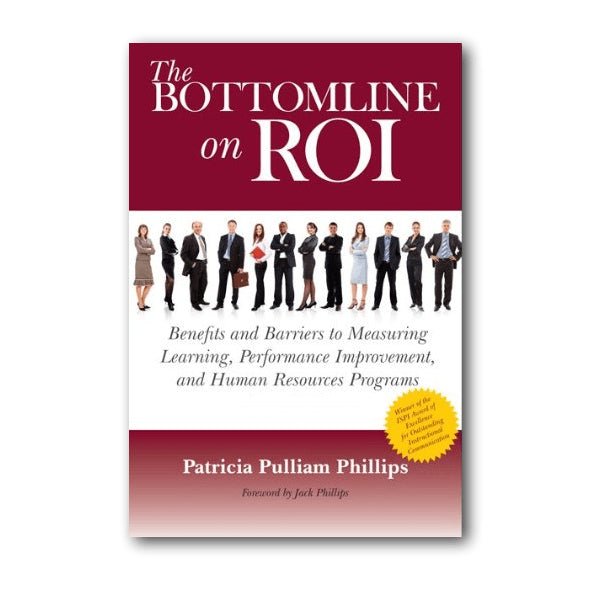
The Bottomline on ROI
Learn how to connect programs, processes, and projects with real results, and see how you can clearly and confidently report those results.
Buy at HRDQstore.com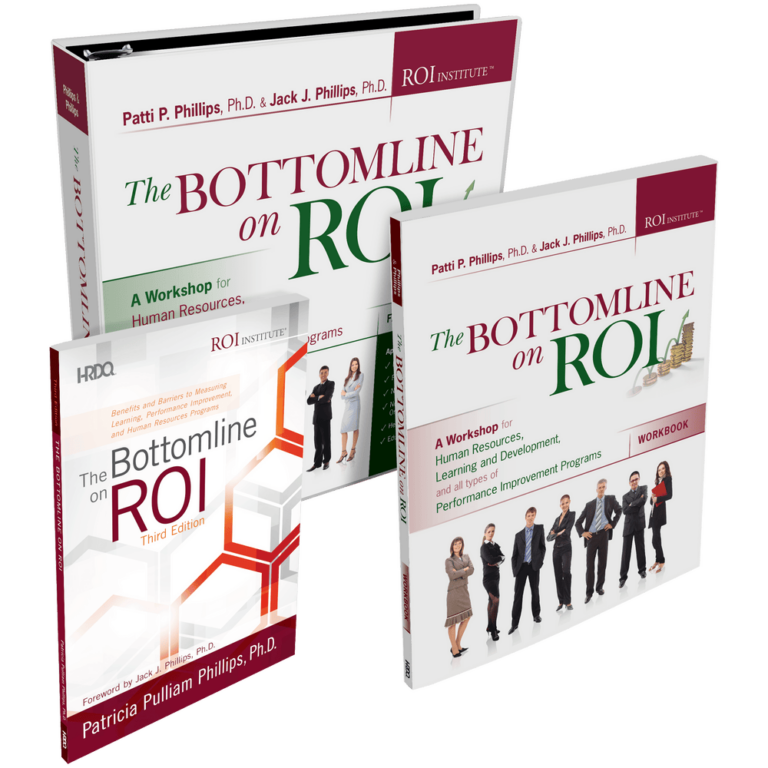
Bottomline on ROI
Learn how to simplify the process of connecting HR, learning, and performance improvement programs and projects to measurable outcomes in a logical way.
Buy at HRDQstore.comThe HRDQ-U In Review Podcast, brought to you by HRDQU.com, brings you the latest insights and practical tools for enhancing soft-skills training in your organization. As a learning community for trainers, coaches, consultants, managers, and anyone passionate about performance improvement, we interview subject matter experts and thought leaders from recent webinars they presented with us to take a deeper dive into the content they shared and answer all your questions. Join us as we explore new ideas and industry trends, share success stories, and discuss challenges faced by professionals.
The HRDQ-U In Review Podcast is intended for HR and training professionals, organizational development practitioners, and anyone interested in improving workplace performance and productivity.
New episodes of HRDQ-U In Review are released every week.
The length of the episodes varies, but they typically range from 15-30 minutes.
The podcast covers a wide range of topics related to HR and organizational development, including leadership development, team building, communication skills, conflict resolution, employee engagement, and more.
No, HRDQ-U In Review is completely free to listen to.
You can listen to any available HRDQ-U In Review Podcast right on our website at HRDQU.com via our embedded Spotify player on the related webinar page. In addition to our self-hosted option, you can find the HRDQ-U In Review Podcast on many of the popular streaming services, which are listed above.